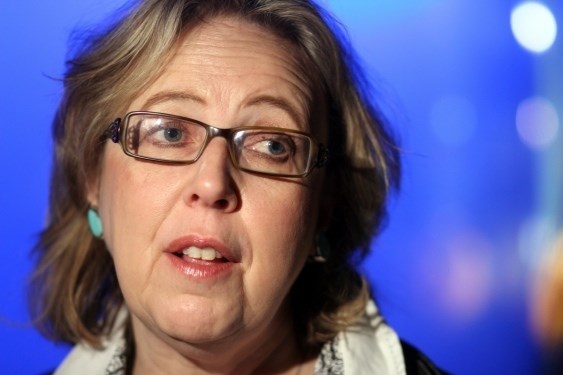In the 1979 film The Life of Brian, the eponymous hero played by Graham Chapman approaches a group of cloaked figures. “Are you the Judean People's Front?” Brian meekly asks them.
“F*** off, 'Judean People's Front'! We're the People's Front of Judea!” spits the leader Reg, played by John Cleese.
“The thing we've all observed about the behaviour of revolutionary groups is that if they’re on the left, they tend to hate each other more than they hate the people originally intended to be the enemy,” Cleese commented in an interview on the Tunisian film set of The Life of Brian. “I’ve got a wonderful tract, a Stalinist tract attacking the Trotskyites, which is absolutely wonderful. The virulence! They couldn’t have topped it if they were going after the National Front.”
Cleese’s remarks came to mind as I pondered our sorry political landscape in Canada. Harper’s reactionary regime is opposed by four quasi-leftish, vote-splitting parties; hardly extremists but all close enough in political ideology to snipe at one another rather than focus on a common enemy.
Bear with me here, because a brief history lesson is required.
In 2005, NDP leader Jack Layton alerted then Liberal health minister Ujjal Dosanjh that he was halting talks on the growing privatization of public health care. Within three weeks the NDP joined the Conservatives and the Bloc in a non-confidence vote, defeating Paul Martin’s minority Liberal government and triggering the next election.
In a 2006 article in The Walrus, “Fake Left, Go Right,” York University professor James Laxer insists the NDP acted as enablers to the Conservative party by limiting the subsequent election campaign to attacks on the scandal-plagued Liberals. About the most Layton would say against Harper and his party is that they were “wrong in the issues,” commented Laxer.
The NDP was understandably concerned that some of their traditional supporters might vote Liberal to deny the Conservatives seats in the House. But Layton’s focused attacks on Stéphane Dion’s Liberal party resulted in a Pyrrhic victory. The NDP went from 19 to 29 seats in 2006, yet they no longer had the balance of power in a parliament presided over by a Conservative minority and Liberal opposition.
Laxer argued the NDP brass preferred a Tory win over a Liberal win, knowing a minority government of their own was a statistical outlier. This way they would no longer have to worry about drifting into the centrist space already occupied by the Liberals. The next election might present a more binary proposition for the voters, at least in theory.
And it happened. Thanks in part to Judean People’s Front/People’s Front of Judea-style sniping and Canada’s bottomlessly stupid first-past-post voting system, a Conservative minority resulted in 2008 and a majority in 2011, with the NDP official opposition after the latter election.
In between elections, the Layton-Harper games of footsie continued. “What the hell is wrong with Jack Layton that he can't answer a phone call? He talks to Stephen Harper all the time,” Green Party leader Elizabeth May said in an April 2007 interview on CTV’s Question Period.
In May’s telling, only after giving up on the NDP leader did she agree with Liberal leader Dion to not run candidates in each other's riding in the 2008 campaign. Layton predictably echoed Harper in condemning the deal.
Already, there are troubling signs that NDP leader Thomas Mulcair is taking a page out of the late Layton’s book of realpolitik. By deciding to skip any debates that don’t include Harper, he is helping the Tories sideline May.
“This stinks to high heaven,” the Green leader told the Globe and Mail in July. “Tom Mulcair has just killed the best opportunity that Canadian voters had to get accountability from a sitting prime minister from opposition party leaders in the forum that reaches the most Canadians.”
A cross-partisan campaign to stifle May signals why her voice is critically important in this election. If enough Green candidates are elected, it’s conceivable May could hold the balance of power in a hung parliament. In which case, she would have a good chance of keeping the gravitas-free Trudeau from inflating into Harper Lite, or holding the NDP true to its long-negotiable principles.
geoffolson.com
@geoffolson
Note: This column has been corrected since first posted



